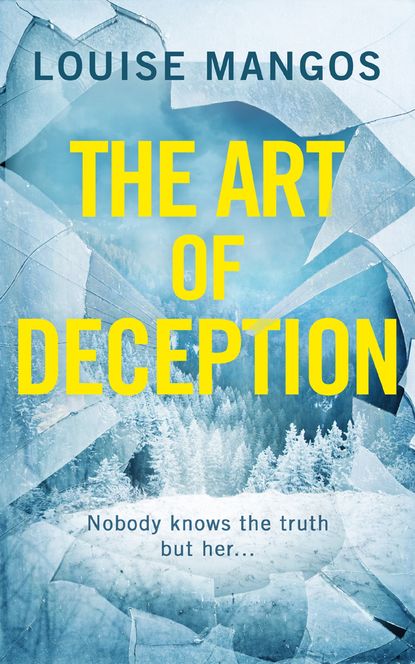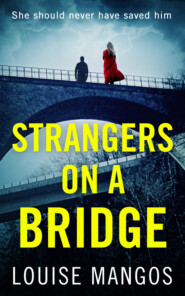По всем вопросам обращайтесь на: info@litportal.ru
(©) 2003-2024.
✖
The Art of Deception
Автор
Год написания книги
2019
Настройки чтения
Размер шрифта
Высота строк
Поля
‘It was being built in 1720, by a man named Friedrich von Erlach. When he died, the building was made a poor house for women. It is how this place developed into a prison. But there is something I want to show you. We go into the Schloss. Come.’
We walk along the wall into a cobbled courtyard and Müller leads the way up the steps into the castle. The door is unlocked. I wonder whether she always has access, or whether she arranged this for us.
Along the hallways and up the stairway of the castle, there are numerous portraits on the walls, but the paintings on the ceilings in the reception rooms are the ones that catch my eye. Müller throws the light switch and I stare up at the scenes painted between the plaster mouldings of what must once have been a great dining hall. There are exquisite scenes of angels and kings. I crane my neck, reminding me of a bygone class excursion to the Sistine chapel.
‘Yes, yes, beautiful, but this …’ Müller opens the doors of what looks like a formal salon, free of furniture. The antique parquet floor creaks under our feet. It is a space designated for parties and gatherings. By trickery of the brush, the room has been made to look larger with rococo trompe l’oeil scenes of Tuscan pillars encircled with vines and Romanesque garden archways, through which there is a hint of dreamy Italian summer skies. The effect is striking, and a complete juxtaposition to the renaissance paintings in the other rooms.
But the final pièce de résistance, and different again, is a relatively small panelled room crammed from floor to ceiling with mountain and country landscapes reminiscent of the Swiss painter Calame or the German artist Bierstadt. The dozens of painted panels take my breath away. It is so hard to believe that this is located in the middle of a prison compound.
‘There was a time …’ Müller leaves her sentence unfinished and bites her lip.
‘You paint too?’ I ask. She shakes her head once.
‘You think you can do?’ asks Müller, my question unanswered.
I stare at her, blowing air through my lips. ‘You are kidding.’
‘I think you can do. Copies. You can copy these. I have been having the idea. You know that every year we have a market here. The Schlossmärit. Everybody makes something to sell. I think you can do painting. You can make your own paintings, but copies of some of these works would get good money.’
I narrow my eyes. Her enthusiasm makes me think she’s not merely considering the lucrativeness of the prison market.
‘I can’t paint like this. I could never match this skill.’
‘I think you should try. Come, let me show you where.’
Curious, I follow Müller out of the castle and back across to the prison outbuildings. We approach the block where many of the handcraft departments are housed and Müller uses her key to enter. The place is empty now at the end of the workday. We walk the length of the building, past the cardboard packing room, a room with computers, and a library where some classes take place for those wanting to study specially offered apprenticeship courses. A stairway leads to the weaving and sewing rooms on the first floor. Beyond the stairs is the pottery where Dolores and Fatima work. On the other side of the corridor there’s a room called the Werkatelier.
‘I’m not working in here!’ I protest.
This is the place where those who can’t concentrate or sit still for long periods of time are employed. Mostly because they’re zoned out on drugs. Müller shakes her head and keeps walking. We pass tables of half-finished pre-printed mandalas. Simple, mind-numbing work.
It’s quiet, except for the humming white noise of the kiln on the other side of the wall. A faint smell of porcelain dust permeates through from the pottery. We go through a door at the end of the block. A little light seeps in through the windows on the north end of the room, through which I can see part of the main greenhouse. The dark blue luminosity reveals easels folded against the back wall, jars filled with brushes and charcoal, trays of half-used tubes of oil and acrylic paints. Different-sized canvases, some blank, some half painted, lean against a cupboard next to rolls of butcher paper. The floor is splattered with the masterpiece of years of spilled and dripping paint.
The airless room smells faintly of turpentine. It feels like no one has been in here for a while, confirmed by a thick layer of dust that lies on the bench. It is almost the artist’s Zion, if it were not situated within the walls of a penitentiary.
‘I had no idea this was here,’ I exclaim.
If I had known of its existence, I would definitely have been more proactive in seeking work in here.
‘That’s what you get for your solitude and Indifferenz. I have suggested to the administration that you should work in the atelier over the winter. I don’t think you will do the asking, so I do it.’
‘Why would you do that for me?’
‘I have seen many criminals in this place over the years. Some have done terrible things without remorse. I would not normally speak like this. We are to be unattached, unemotional, and I don’t know if you killed your husband. Maybe, but I’m sure not on purpose.’ I narrow my eyes at Müller’s grammatical errors. ‘But it is our Ziel, our goal, to integrate all prisoners back into society and some have skills that can be used after you are free. You need to continue to build your skill. And more important, I am somebody who appreciates good art. These things mean that you have a little of my sympathie, Lucie.’
It is the first time any guard has used my first name. We are all referred to as ‘Frau’ and our last names, to avoid the very sociability in which we now find ourselves.
‘Well, I think I should like that. Thank you. To work in the atelier … What is your first name, Frau Müller?’ I think she realises the line she has crossed, and ignores my question.
‘I’m glad you have decided. It is time to eat. We must get back,’ Müller says gruffly as though she has read my mind, and she herds me out of the door and down the stairs.
* * *
Seven years ago
‘My father, Didier, is Swiss, and my mother, Natasha, who we all call Mimi, is Russian by birth,’ explained Matt.
We were tucked into the corner of a rustic restaurant eating fondue. Matt showed me how to stir the cheese vigorously, to avoid separation or burning on the bottom of the caquelon.
‘That makes my English roots sound so mundane in comparison,’ I said. ‘How come you speak such good English? You should be fluent in Russian.’
‘I don’t speak much Russian. The language at home while I was growing up was English. I think Mimi thought there was some sophistication in that – can’t think why.’ He smiled cheekily as I brandished a cheese-laden morsel of bread at him on the end of my fork.
‘If your mum’s Russian, how did she end up here?’
‘Via London actually, hence the association with English, ma belle Anglaise.’
He held up his shot-sized Vaudois wine glass and we clinked, kissed and sipped before stabbing and dipping our next pieces of bread.
‘Mimi’s parents, my grandparents, escaped Petrograd which is now St Petersburg, and fled to England before the February Revolution of 1917. They could see that the Duma was gradually becoming unstable over the years since its formation, and had prepared for a possible uprising.’
‘But the language of the aristocracy in Russia was French for many years, if I’m not mistaken,’ I said.
Matt nodded. ‘Even at the beginning of the twentieth century, French was the language of la noblesse. Mimi was bilingual until she was about 5, and then trilingual, as English became her third language. She and my aunt went to a private school in London for a few years until my grandfather was offered work as an interprète at the newly founded League of Nations, and they moved to Geneva. They lived in a big house on the shores of Lac Léman, near Versoix.’
‘Could an interpreter’s salary at the League of Nations support those costs – an expensive private school in London and a mansion on the lake?’
‘My grandparents managed to, how would you say, smuggle, some accumulated tsarist funds out of pre-Communist Russia, probably in the form of gold and precious stones.’
‘How did your parents meet?’
‘Mimi met my father at an art conference in Genève. He dabbled with art in his youth, worked in acquisitions at a gallery for a few years until he realised his dream of becoming a writer. After they married, he persuaded Mimi to move to this more rural pre-alpine region so he could concentrate on his writing. He published a few books, but none became bestsellers.’
For all the romanticism a carefree seasonal fling with a ski bum conjures, Matt had an equally impressive background born almost of the stuff of Ian Fleming tales. I was happy he was opening up his past to me, but I wondered how Matt’s parents could survive on the earnings of a writer of second-rate commercial fiction without the publication of a successful novel.
The fondue pot was now empty. Matt placed the cap over the burner to put out the flame. I folded my napkin and laid it on my plate.
‘Not finished yet, ma belle.’ Matt smiled, grabbing the caquelon.
He began scraping at the large coin of cheese burned onto the base of the pot with his fork, deftly lifting the golden disc and taking it between his fingers when it had cooled. Tearing it down the middle, he handed half to me. ‘The best part – la religieuse.’
I was doubtful – a piece of burned cheese – but the salty offering tasted like the best crusty bits round the welsh rarebit my mother used to serve me as a child. It silenced my thoughts about heritage and financial means.
* * *
The first time I properly encountered Natasha and Didier Favre, we chose to meet at a busy Italian restaurant in the lower village. I figured the distractions of the animated chefs in the open kitchen and the bustle of the waiters around the customers would reduce the scrutiny I might be subjected to by Matt’s rather exotic parents. I was flattered that for one who was keen to maintain our relationship on a casual level, he had wanted me to meet them.
Matt’s mother, Natasha, was a beautiful, poised woman. She raised her chin and looked down her nose at me as we shook hands. There was to be no traditional Swiss embrace one would expect for the girlfriend of a son, and I was sure she didn’t approve of me. Her supercilious attitude gave the impression that she didn’t appear to approve of anyone, including Matt and his sister Marie-Claire. His sister was barely out of her teens when she married and moved to California with the American husband she had met at the very same college where Matt also studied, and where we both now worked. Exchanging one surreal family situation for another.






